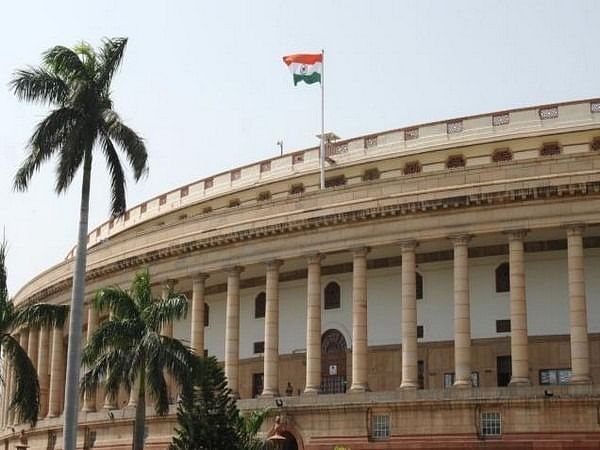New Delhi [India], June 19 (ANI): Rajya Sabha Chairman M Venkaiah Naidu has granted an extension to the Parliamentary Standing Committee on Education, Women, Children, Youth and Sports for Prohibition of Child Marriage (Amendment) Bill 2021, which proposes to raise the minimum age of marriage for women from 18 to 21.
Notably, the Rajya Sabha term for the chairman of the Parliamentary Standing Committee on Education, Women, Children, Youth and Sports Vinay Sahastrabuddhe has recently expired.
While Sahastrabuddhe no longer continues to be a member of the Upper House, the appointment of a new chairman for the committee is still pending. Keeping this in mind, Rajya Sabha Chairman Naidu has granted a further extension of time to the Department-related Parliamentary Standing Committee on Education, Women, Children, Youth and Sports up to July 24, 2022, for the presentation of its Report on ‘The Prohibition of Child Marriage (Amendment) Bill, 2021,’ said the parliamentary bulletin.
Earlier during the budget session, the Rajya Sabha chairman had given an extension to the Committee to submit its report by June 24, 2022.
The parliamentary panel had the Marriage Bill referred to it in the last winter session of Parliament.
The much spoken of ‘The Prohibition of Child Marriage (Amendment) Bill 2021’ proposes to raise the age of marriage for girls from 18 to 21 years.
The 31-member panel has a lone woman Rajya Sabha MP from All India Trinamool Congress (AITMC) Sushmita Dev.
Several MPs including Trinamool’s Sushmita Dev and Shiv Sena’s Priyanka Chaturvedi had objected to the composition of this committee which had only one woman member.
The ‘Prohibition of Child Marriage (Amendment) Bill, 2021’ proposes to amend the ‘Prohibition of Child Marriage Act, 2006 (PCMA)’ for making the age of marriage 21 years for both males and females, which is presently 21 years for males and 18 years for females and consequential amendments in laws relating to the age of marriage that is ‘the Indian Christian Marriage Act, 1872’; ‘the Parsi Marriage and Divorce Act, 1936’; ‘the Muslim Personal Law (Shariat) Application Act, 1937’; ‘the Special Marriage Act, 1954’; ‘the Hindu Marriage Act, 1955’; and ‘the Foreign Marriage Act, 1969’. Also the laws namely ‘the Hindu Minority and Guardianship Act, 1956’; and ‘Hindu Adoptions and Maintenance Act, 1956’
The Directive Principles of State Policy (particularly the Right to Equality and Right against Exploitation) under the Constitution of India guarantee gender equality.
The proposed legislation is a strong measure towards the commitment of the government for the same as it will bring women on equal footing with males.
There are imperatives for lowering the Maternal Mortality Rate (MMR), Infant Mortality Rate (IMR) and improvement of nutrition levels as well as increasing in Sex Ratio at Birth (SRB). These are the main reasons for effecting the proposed legislation. (ANI)
This report is auto-generated from ANI news service. ThePrint holds no responsibility for its content.



